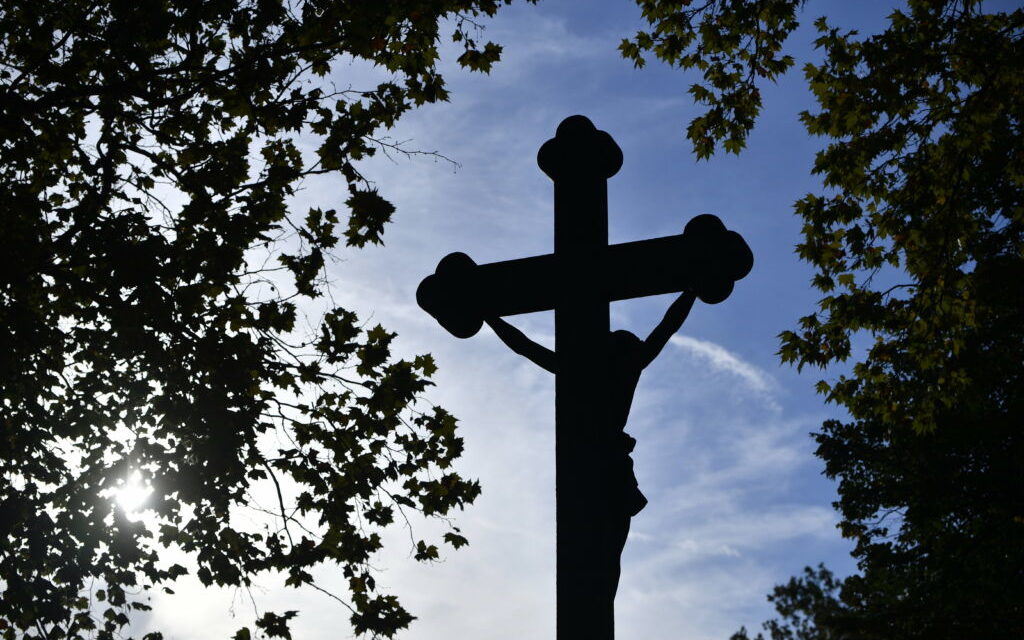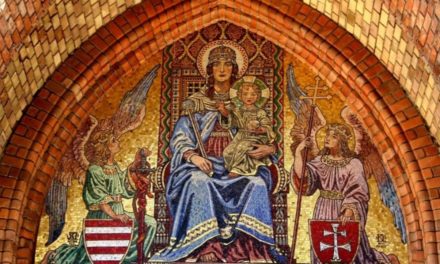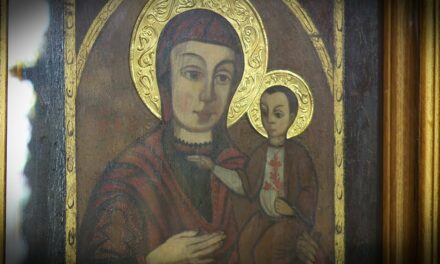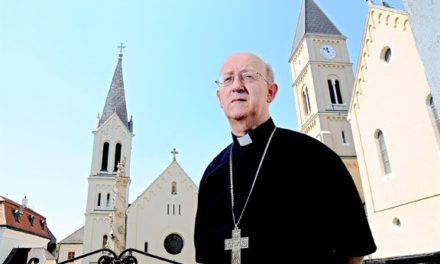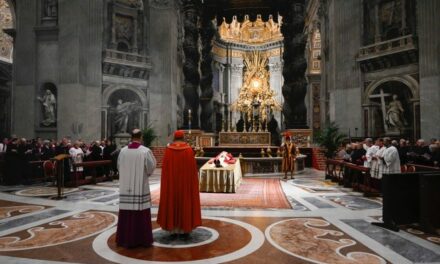Recently, while visiting a German bishop's seat, I entered the city's largest bookstore, where the "Religion" section welcomed me with the following works: "Catholic and queer", "Comingout in the Church", "As a Queer with God: Bible and Faith under the Rainbow", "Queerness in in the Catholic Church", plus, for the sake of variety, a treatise by a homosexual priest, whose preface says that an individual's attitude towards homosexuality shows as a litmus test whether that person is a populist of bad faith: that is, of course, a populist of bad faith if he tries to follow the teachings of the Church and thus the narrow path follow and advertise.
But in the event that none of these publications arouse the interest of a person open to faith, fortunately there were others on offer: "Women in the priestly order!", "God's word as a woman - how can we weed out patriarchal traits from the text of our prayers"; or the newly published "How did Jesus become white?" "My dream of a church without racism" book. More. The question "Who on Earth demands what from the church as an organization?" can really get all the answers. or "What should the Holy Spirit tell the Pope according to the given author?" to his very constructive question.
But would it be okay if, instead of recipe books with ideas for perfecting our culinary art, monographs revealing the secrets of great chefs, or manuals introducing young people who are just getting to know the wooden spoon to kitchen technical operations, in the gastro section of the same bookstore, there were testimonials like "Every raw vegan in a restaurant" and "Michelin's trans quota -at stars!" kind of manifestos would be on the shelves?
I can understand the frustrations of the authors, there may be a place for this kind of thing in the self-help book section, but perhaps it is a legitimate expectation (and not LGBT-phobia) that those who want to bake prettier sponge cakes or more crumbly meat should receive instructions on this in cookbooks.
Just as the enthusiastic amateur enrolls in a baker's course in order to get closer to the ideal of a world champion cake - if he wanted to be patted on the shoulder consolingly, saying, don't worry, we love you that way, with this little unbaked, amorphous thing of yours, then he wouldn't turn to a master baker, but to his girlfriends or some kitchen psychology freak.
Perhaps something like this could be the reason why, while the saddle in Csíksomlyó was once again filled with hundreds of thousands celebrating Pentecost, in Germany, 25,000 Catholics (out of 22 million) gathered at the biennial event of the 102nd Katholikentag, which was also quite large, so that even within that 7,000 was present as a main speaker, exhibitor or organizer.
The program looked almost as if the Free University of the Greens had been poured down the neck with a little spiritual syrup - and hey, for some reason it didn't attract crowds. On the other hand, at the farewell in Csíksomlyó, there was no exchange of ideas about the experiences of lesbians at work, no Muslim politician was sacrificed (in a sacrilegious way) in the name of sacred equality and diversity, no workshop was held on the queer reading of the Gospel of John, but not even an agnostic climate researcher was horrified by the hopelessness of the situation, in fact, he apostatized nor did Protestant politicians gather around the microphone to address Putin, as at a gathering of German Catholics; instead, what happened was that after the night vigil, the baptists walked up to the saddle, and there people of heterosexual and homosexual orientation, families, divorced and single, holy people and those who constantly fail, prayed together without discrimination to the "Keep us in the holy faith and virtues of our ancestors!" in the context of the inscription, humbly asking for the help of the Holy Spirit. Is it any wonder that Catholics seeking spiritual fulfillment prefer this latter event?
"This is the most important spiritual practice of our time: to feel togetherness in diversity," the female co-preacher pointed out to the six thousand German Catholics at the closing mass of the Katholikentag; it couldn't have been better at a corporate yoga club session.
The question is, where is the Catholic added value in this, which the frustrated person could cling to, from which the discouraging person could draw strength and from which the believing Christian could continue to build.
You can read the article published on Vasarnap.hu in its entirety

